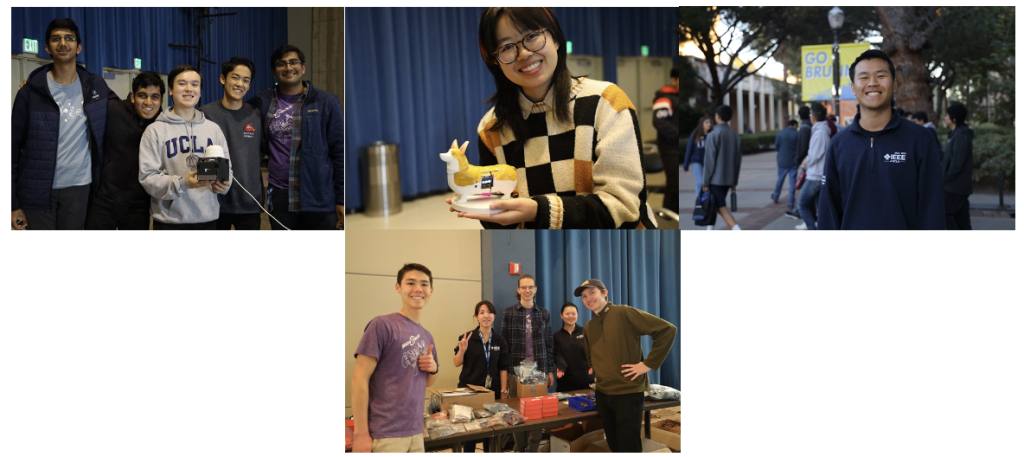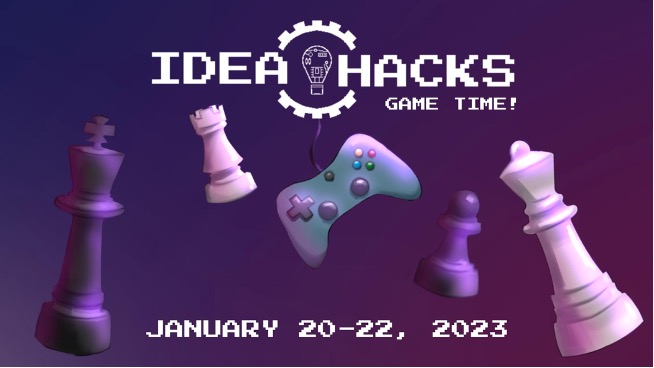
IDEA Hacks is the premier hardware-focused hackathon on the West Coast. Hosted by IEEE’s Student Branch at UCLA over 36 hours on January 20-22 this year, it provided hundreds of students from both UCLA and local community colleges with the opportunity to develop their own tangible products. Throughout the experience, IEEE provided parts, tools, space, food, and workshops all for free, so these students could focus solely on their projects.
This year was the ninth annual IDEA Hacks, and the theme — “Game Ti me!” — encouraged participants to gamify a daily practice, an environmentally-friendly behavior, or any mundane task to make it more enjoyable. Products encouraged healthier habits by making one’s routines more engaging and enabling users to compete with themselves or others. The three sub-categories — mental and physical health, sustainable practices, and “just for fun” — promoted the creation of projects that benefit one’s wellbeing, the health of the planet, or enjoyment of life.
Due to the Covid-19 pandemic, IDEA Hacks had not been held in person since 2020. To revitalize the hackathon this year, IEEE integrated several new initiatives targeting minimizing its environmental impact, encouraging interdisciplinary learning, supporting participants’ health, integrating the arts, and inviting community colleges.

IDEA Hacks reached a diverse audience, with the 341 applicants coming from a wide range of backgrounds. Approximately 240 students attended and submitted a total of 41 projects for judging. For context, IDEA Hacks 2020 (the last time IDEA Hacks was in person) had 208 people attend. Regarding project submissions, IDEA Hacks 2022 had 21 project submissions and IDEA Hacks 2020 had 37 projects submitted. Additionally, for the first time in IDEA Hacks history, IEEE specifically invited community college students from El Camino, Santa Monica, and East LA College. In total, IEEE hosted 26 community college students, 18 of whom stayed overnight in the UCLA Luskin Conference Center, thanks to five rooms subsidized by IEEE at UCLA. The students attending IDEA Hacks had a range of technical backgrounds, ranging from zero hands-on experience to work in the military, purely electrical to purely mechanical knowledge, and years of project experience to students only getting started in engineering.
This event would not have been possible without volunteers and campus partners. There were 37 student volunteers managing parts checkout, assisting students, staffing the makerspace, and hosting workshops. Partnerships with other student organizations helped increase diversity in the event’s leadership and included the following organizations:
- American Society of Mechanical Engineers (ASME)
- IEEE Women Advancing Technology through Teamwork (IEEE WATT)
- 3D4E (3D Printing for Everyone, a 3D printing club at UCLA)¬
- Renewable Energy Association (REA)
- UCLA’s Game Music Ensemble (GME)
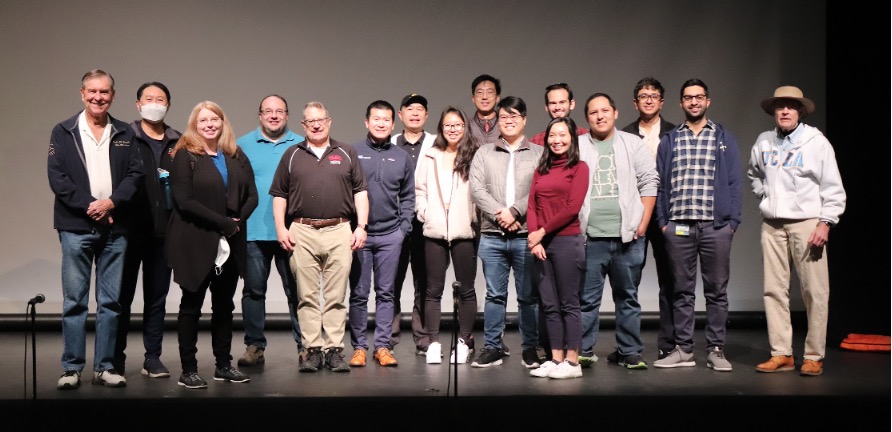
IEEE also invited 17 judges composed of industry representatives, faculty, and UCLA alumni who judged our 41 submissions over two rounds. They were thoroughly impressed by all the students’ projects. A complete list of final submissions is available on the IEEE Devpost (https://idea-hacks-2023.devpost.com/project-gallery), but below are the winners:
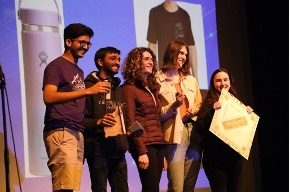
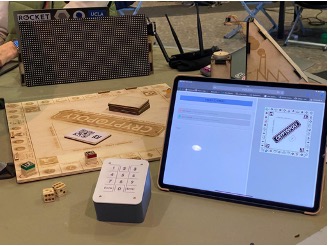
First Place Overall: Cryptopoly
Team members: Ava Ankenbrandt, Julie Cover, Courtney Gibbons, Abinav Ramachandran Kamalakannan, Kush Agarwal
Devpost: https://devpost.com/software/cryptopoly-1g2izh
Presentation: link
Description: The game of Monopoly was designed to show why monopolies are bad. This team decided to extend that idea with Cryptopoly, a fun educational game to demonstrate the many downsides of cryptocurrency. As the value of crypto fluctuates wildly in real time, the computer vision system monitors the game board to simulate the market and keep everyone’s wallets up to date. Players manually perform prime factorization on every turn to extend the blockchain. And make sure to keep the power plant’s candle burning–if the fossil fuels run out, the game ends!
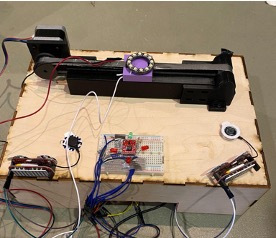
Second Place Overall: FlexOff
Team members: Arnav Doshi, Tim Zou, Takeo Torry
Devpost: https://devpost.com/software/flex-off
Presentation: link
Description: FlexOff is the solution to a boring workout. FlexOff allows friends to play against each other in a battle of who can sustain consistent muscle activation the longest. The EMG sensor tracks muscle activation, and the tug-of-war gantry system shows the real-time relative activation. The winner is the player who can flex the LED to their side of the track! Players can flex their bicep, or battle against each other in push-ups or squats, the possibilities are endless.
Third Place Overall: Roshambow
Team members: Nathan Habtemariam, Warnakulasuriya Fernando, Didier Lucu, Saurav Kshetri, Jillian Pantig
Devpost: https://devpost.com/software/roshambow
Presentation: link
Description: To deter you from continuing bad habits, Roshambow forces you to compete against a computer-vision rock-paper-scissors opponent before accessing your phone/money/sugary treat from a locked box. This system recognizes your hand gestures and displays the computer’s action with a mechanical hand.
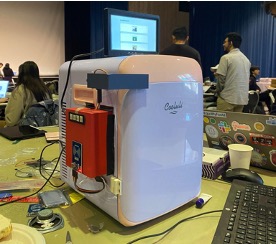
Best Environmental Project: OpenFridge
Team members: Esha Thota, Bhavik Joshi, Akhil Manthina, Derek Hua, Ava Asmani
Devpost: https://devpost.com/software/openfridge
Presentation: link
Description: Though community fridges have proven to be valuable resources, automation and gamifying the concept can increase their popularity and scope. OpenFridge is a secure, automated system that incentivizes people and businesses to donate food to those in need, combating food waste and food insecurity.
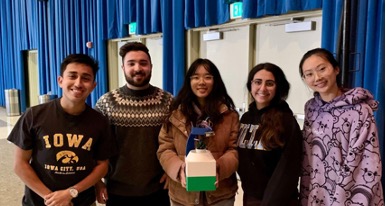
Best Health Project: Growth
Team members: Nazanin Iranzamini, Jessy Li, Zhen Guo, Jorge Almeida, Avrin Readilaleh
Devpost: https://devpost.com/software/growth-ha3kei
Presentation: link
Description: Growth is a plant raising game that helps you monitor your health by nursing a plant. By interacting with the device, you can grow your plant and grow yourself.
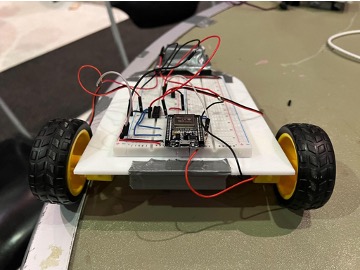
Best “Just for Fun” Project: Heart Racers
Team members: Jacob Levinson, Preston Futaba, Steve Lee, Randy Liu
Devpost: https://devpost.com/software/exercise-cars
Presentation: link
Description: Heart Racers is a fun way to exercise with your friends by encouraging healthy competition. By using a Pulse Monitoring sensor, the remote-controlled car will speed up with your heart rate as you exercise.
There were numerous activities beyond hacking throughout the event. These included workshops, structured games, live music performances, and a chocolate-tasting social.
To support students, IEEE hosted the following workshops:
- Hacking fundamentals: teach students the basics of starting their project
- Product development: how to come up with a product idea that meets a need
- Sensor fusion (hosted by Digi-Key): how to use a Raspberry Pi Pico W and MicroBlocks
- Environmental sustainability: simple actions to protect the environment that could inspire projects in the hackathon
- Sensing: how to connect and utilize sensors
- Wireless communication: Integrating Bluetooth and WiFi with an ESP32
- Fusion 360: Quickly and collaboratively designing CAD projects
- CAD worksession: drop-in time for participants to get help with CAD
- Pitching: tips for pitching the projects during judging
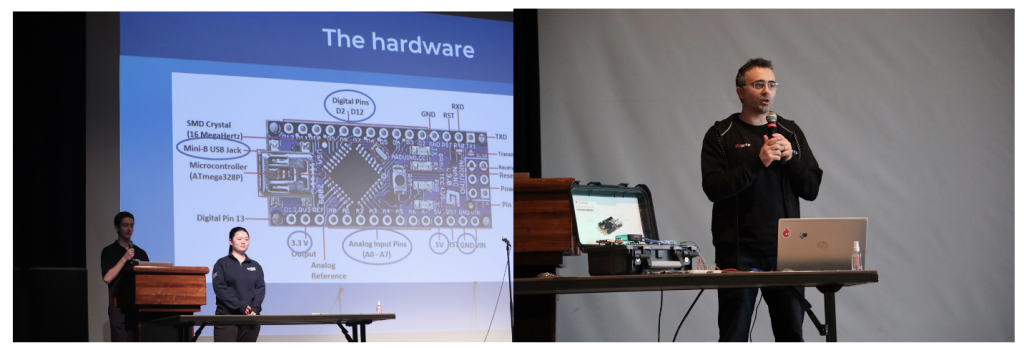
To keep students from overworking themselves, IEEE integrated the following events:
- Classical music performance by a string quartet during check-in
- E-waste art social where students could meet other participants and repurpose old electronic components
- Chocolate tasting of Vietnamese coffee bonbons hosted by Marsatta Chocolate
- Live jazz performance from UCLA’s Game Music Ensemble
- Voting on the best water bottles brought by participants (link to submissions is here
- Cup stacking and karaoke with prizes for the top performers
- Yoga session to stretch on Saturday afternoon

Sponsorships were essential in the success of IDEA Hacks 2023. Beyond providing funds for parts, food, the venue, and other supplies, students loved interacting with sponsors. IEEE hosted three sponsors: Digi-Key, Infineon, and IEEE’s University Partnership Program (IEEE UPP). Many companies also donated food, including California Nuggets, Rhythm Superfoods, Guayaki, and That’s It. Participants loved these donated snacks in addition to the catered food for the main meals.
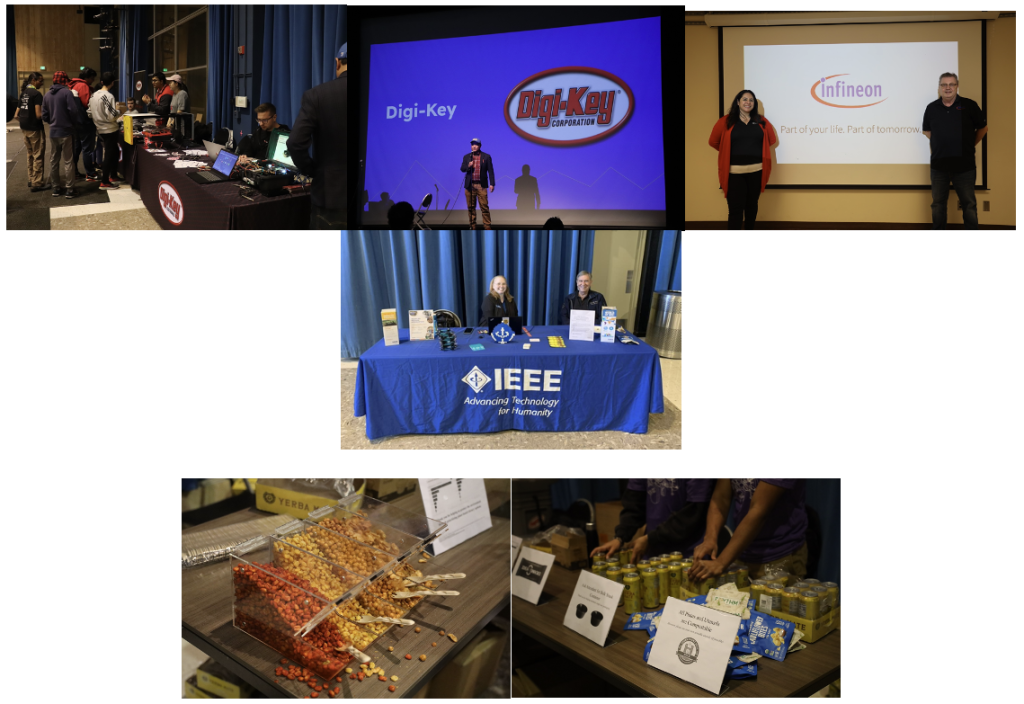
Next year will be the 10th anniversary of IDEA Hacks. IEEE hopes to build upon the momentum established this year to make it a truly memorable experience for students.
